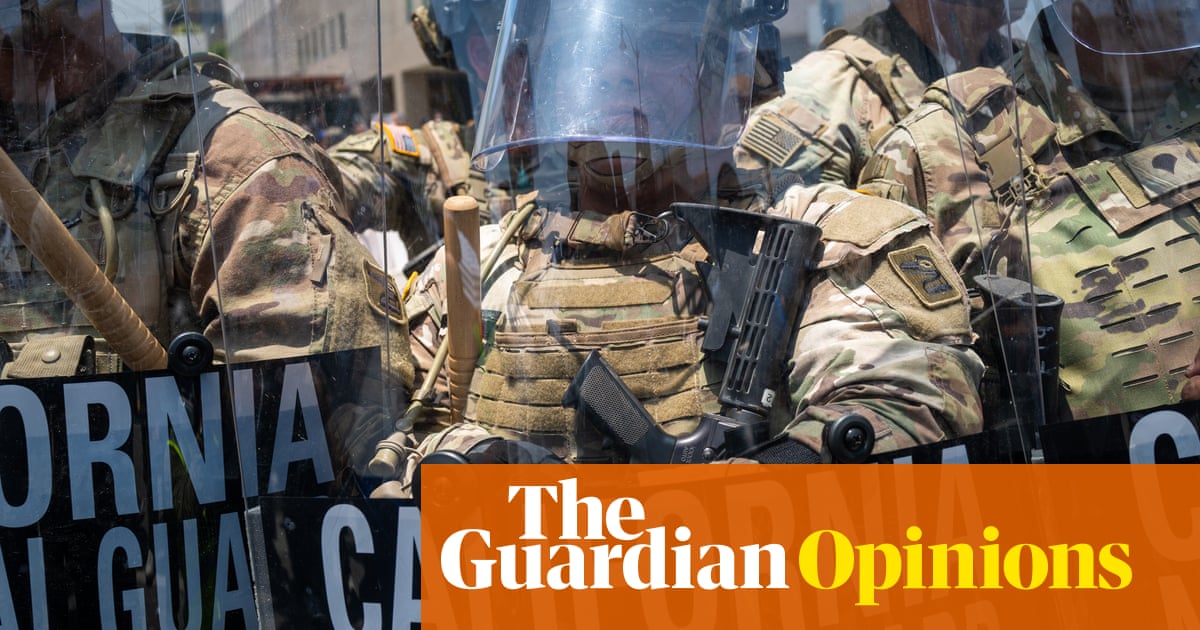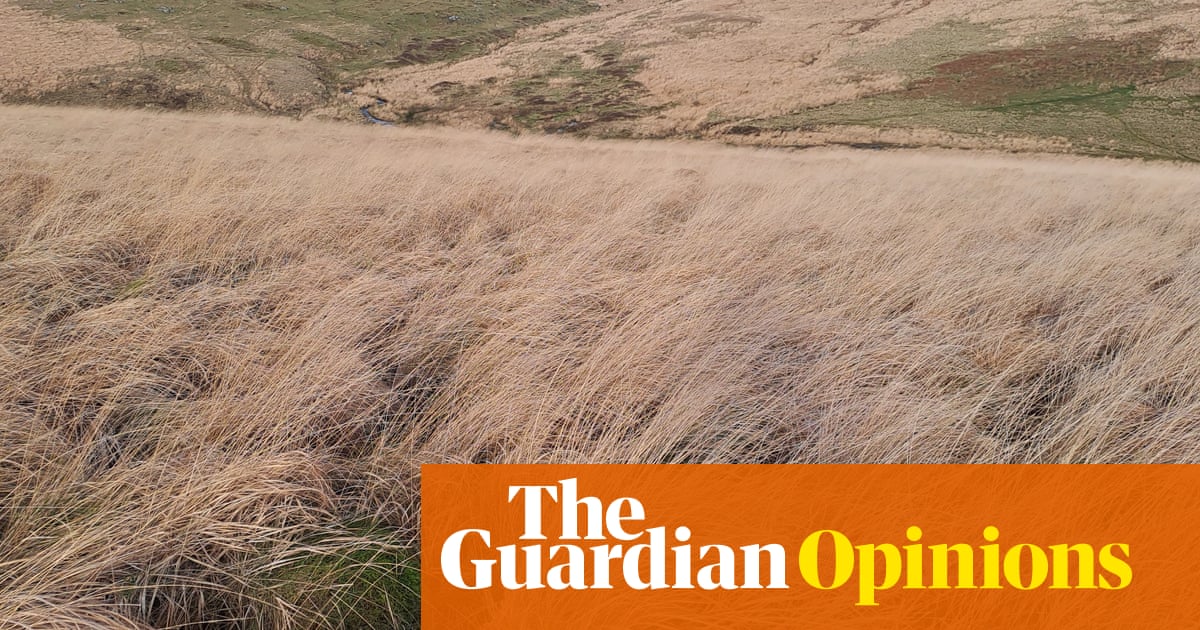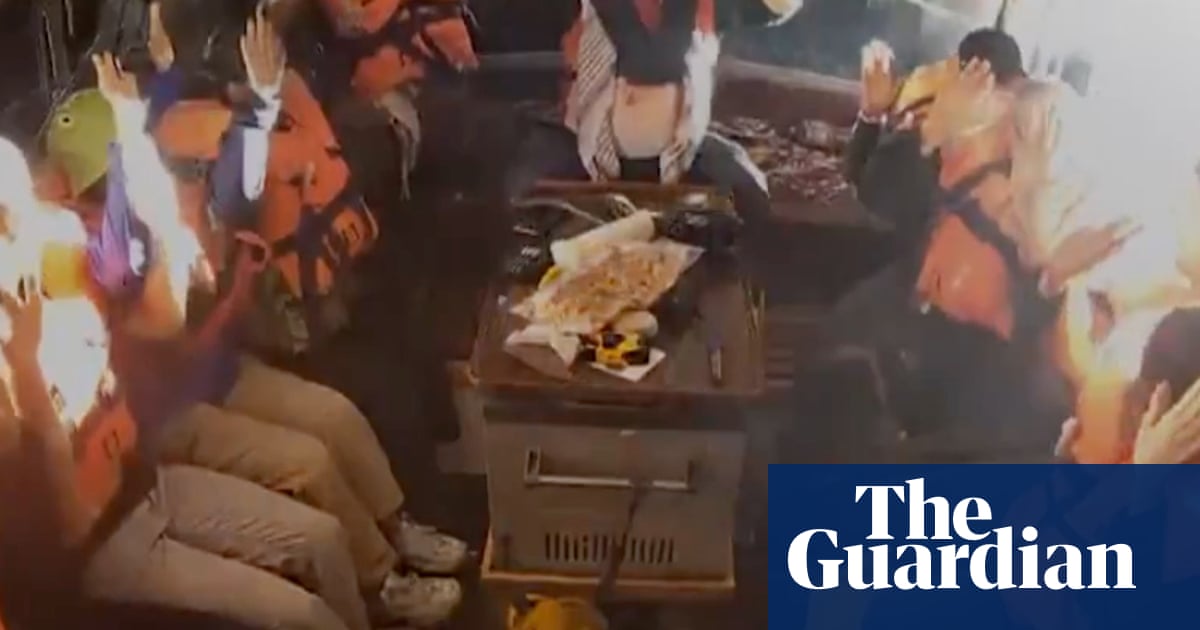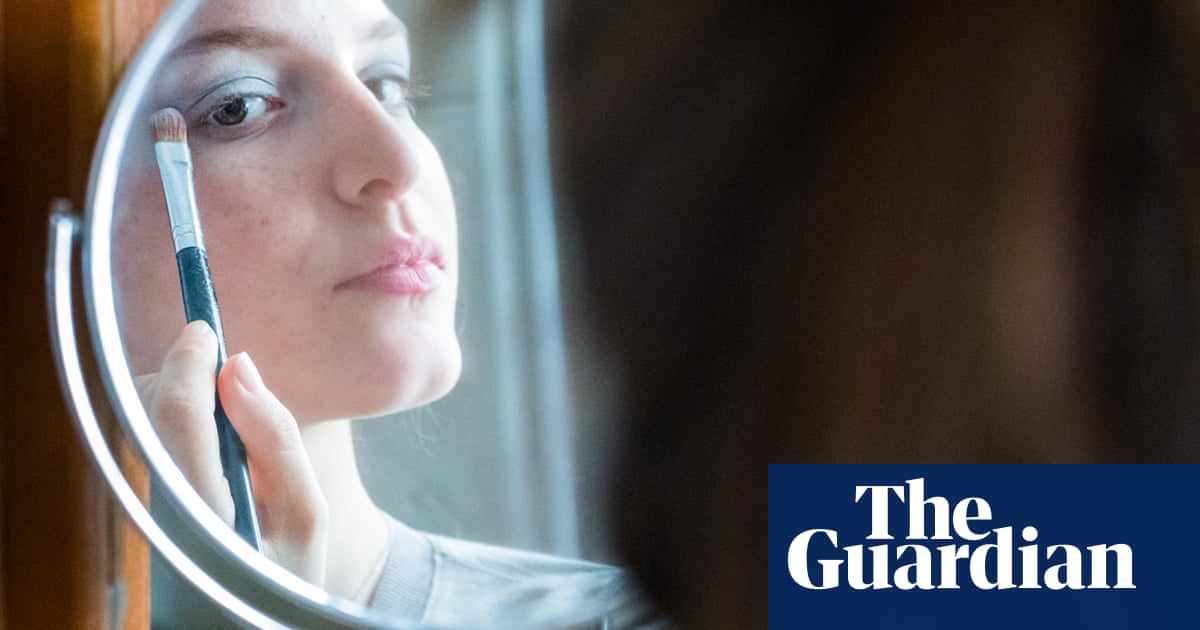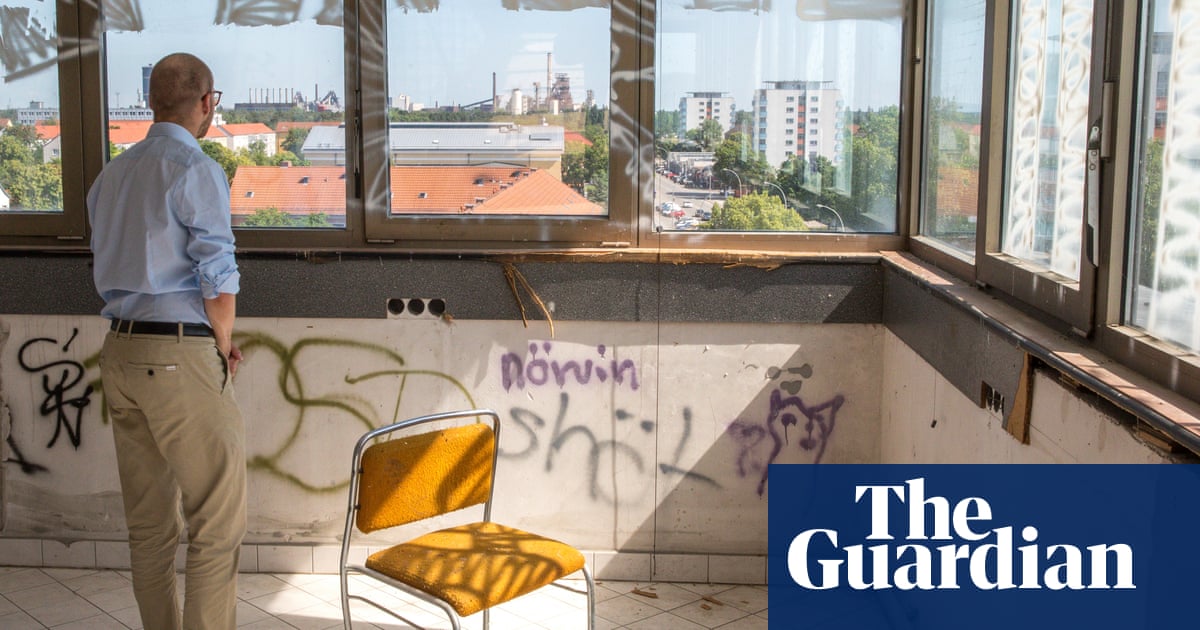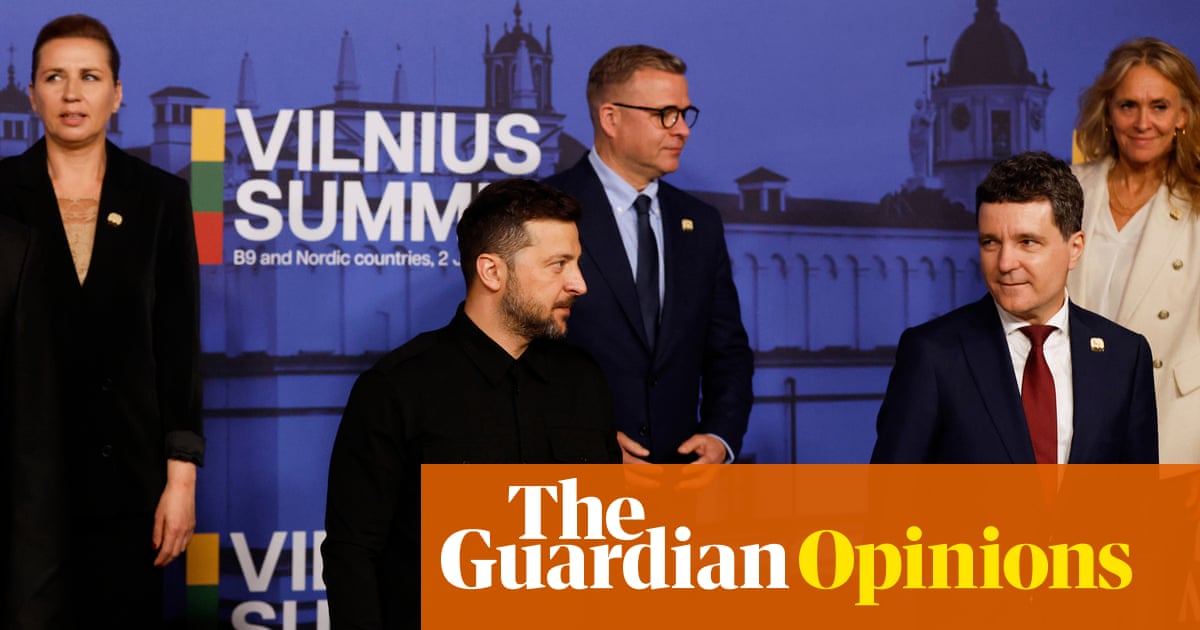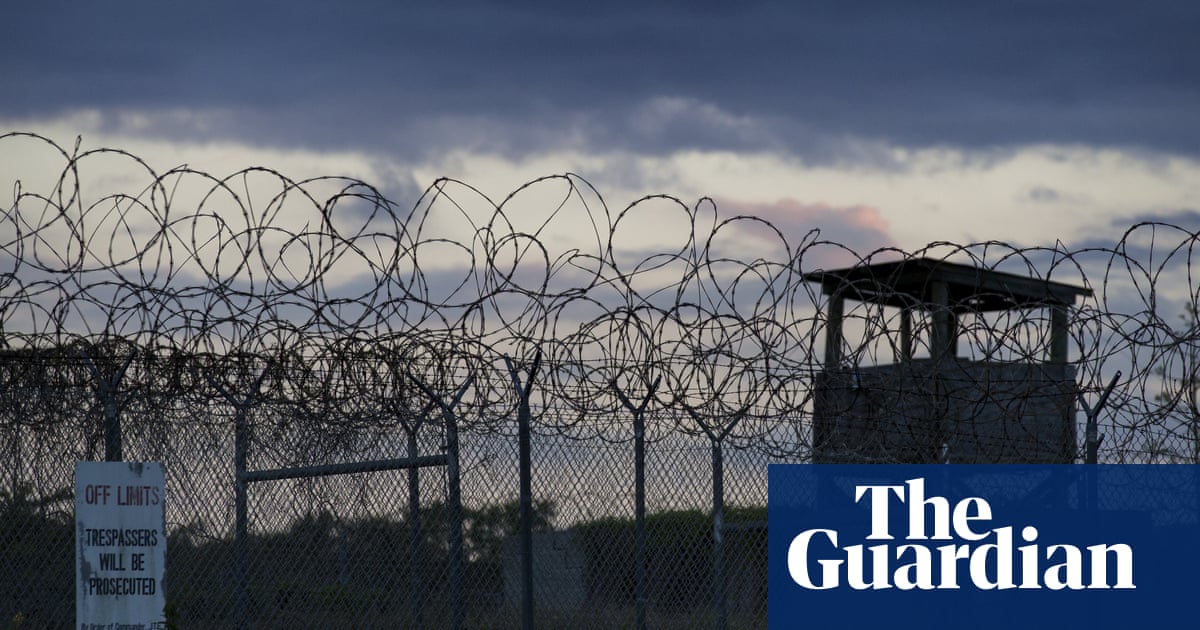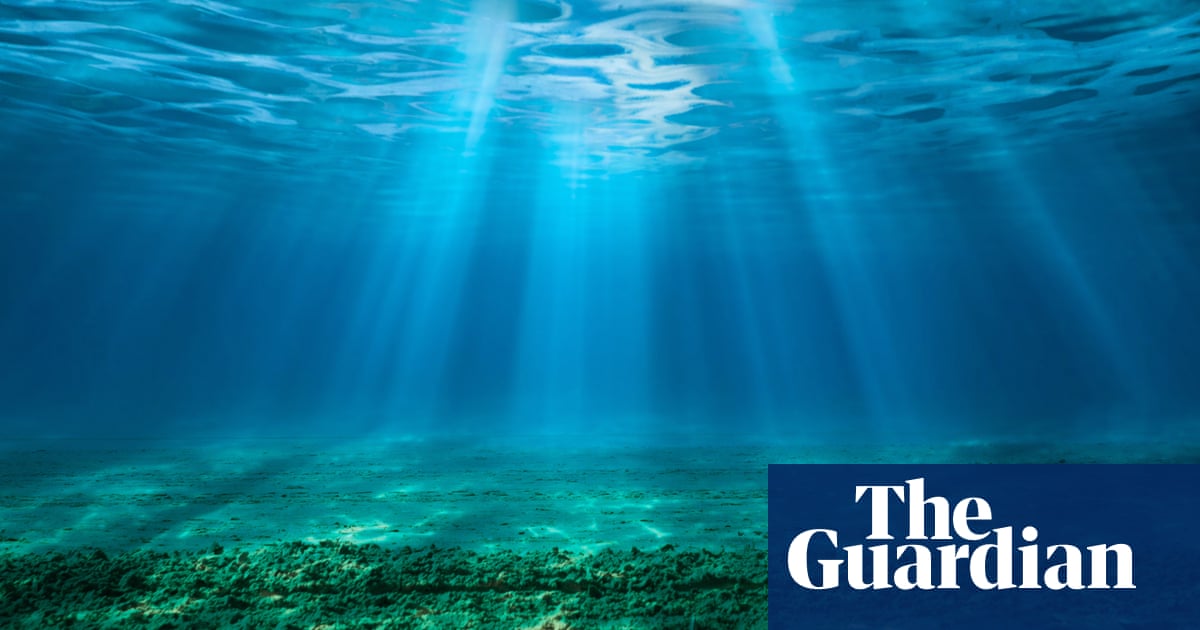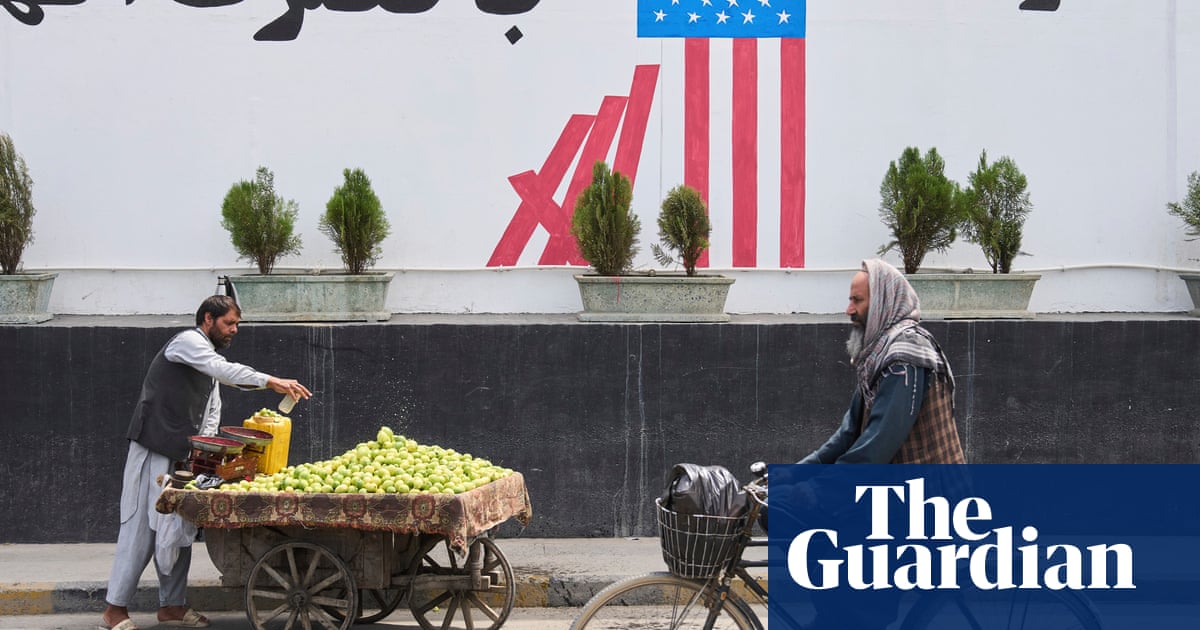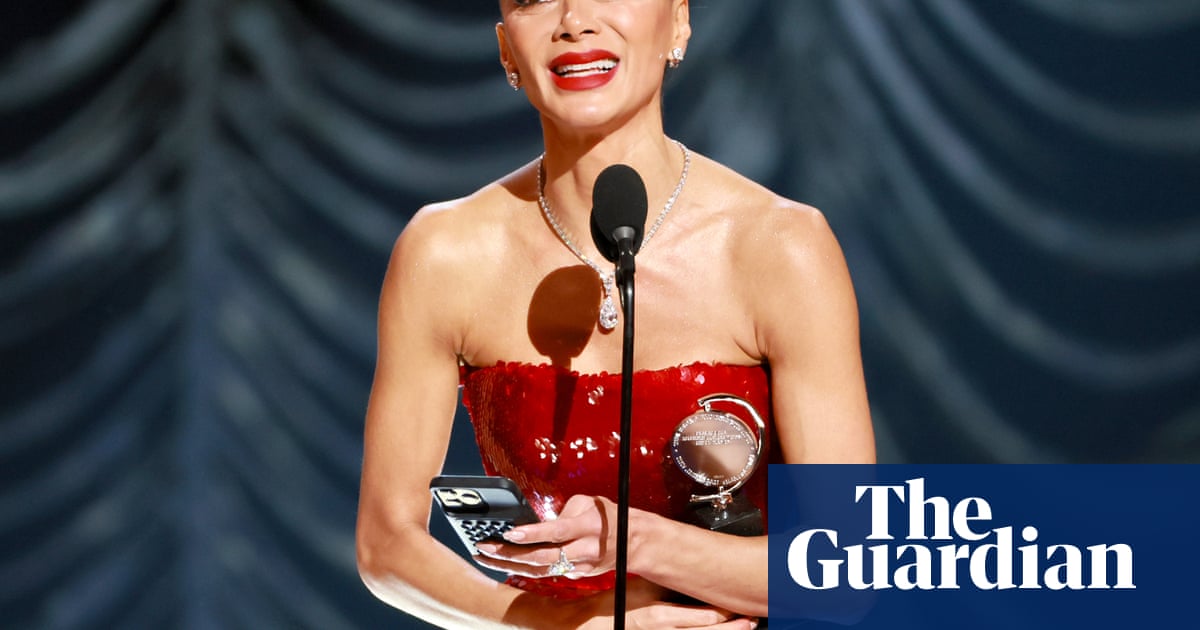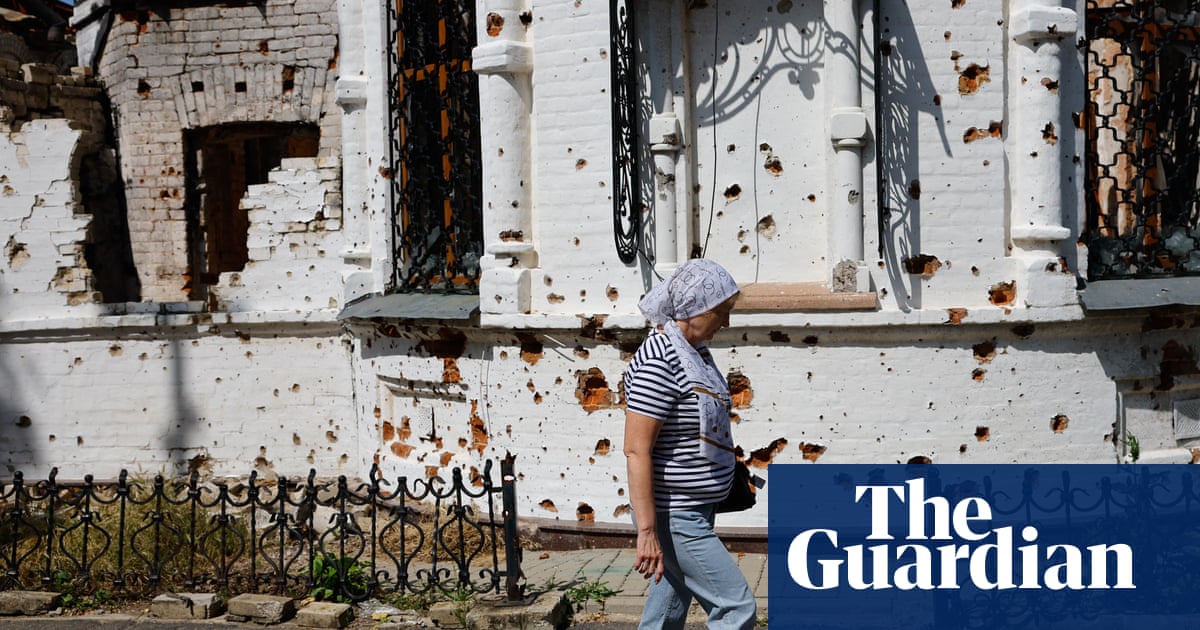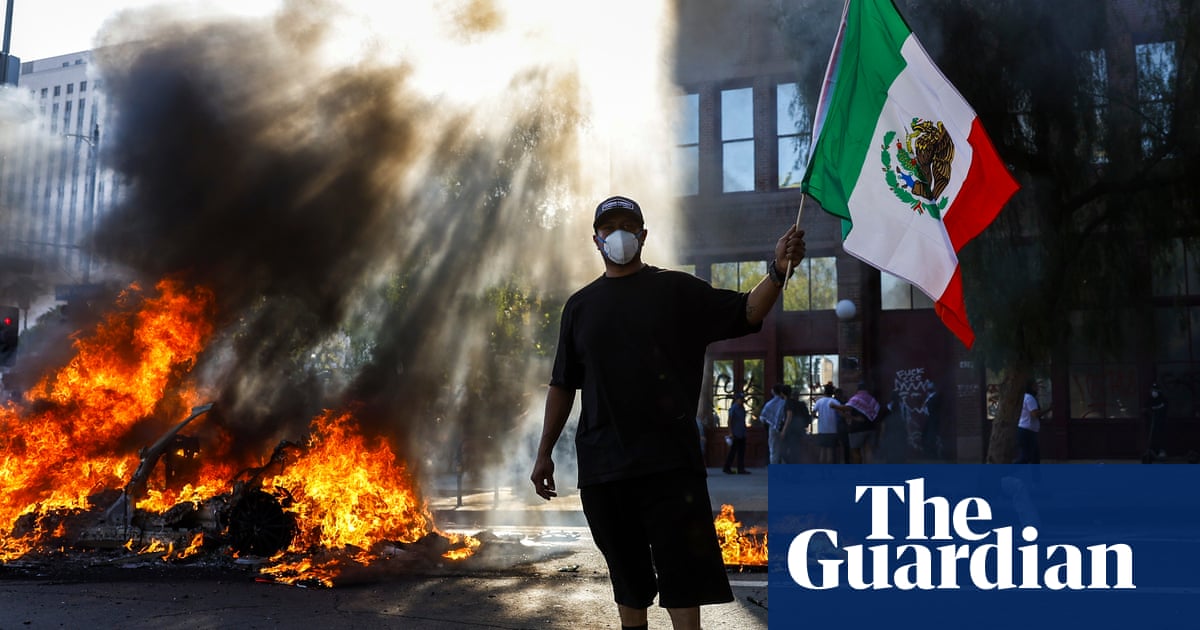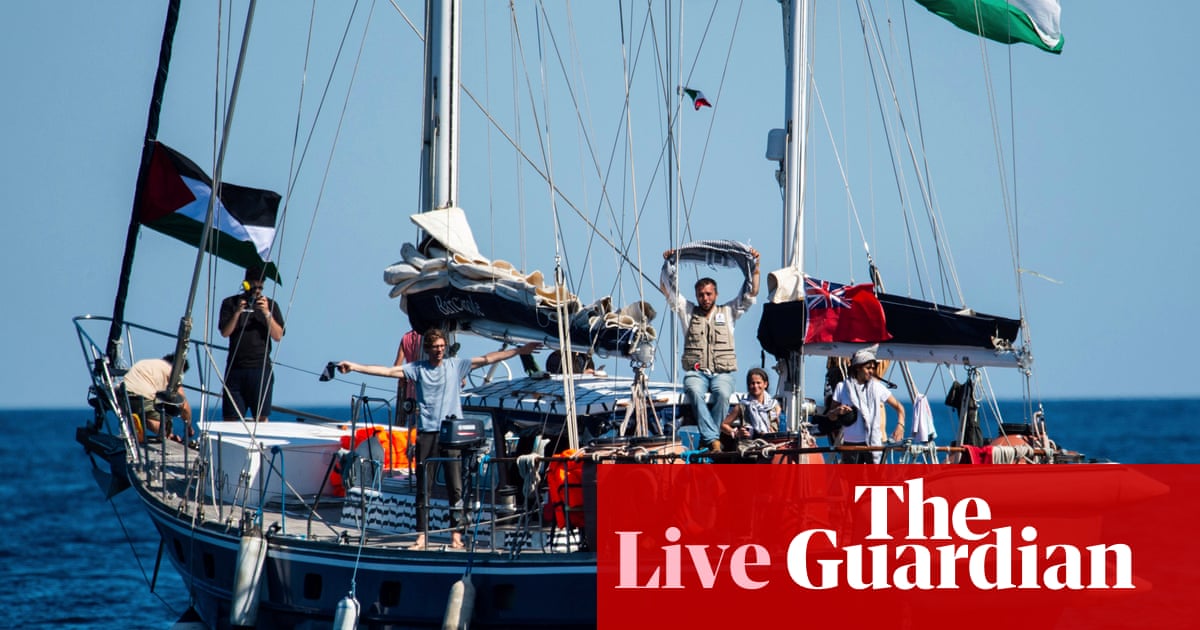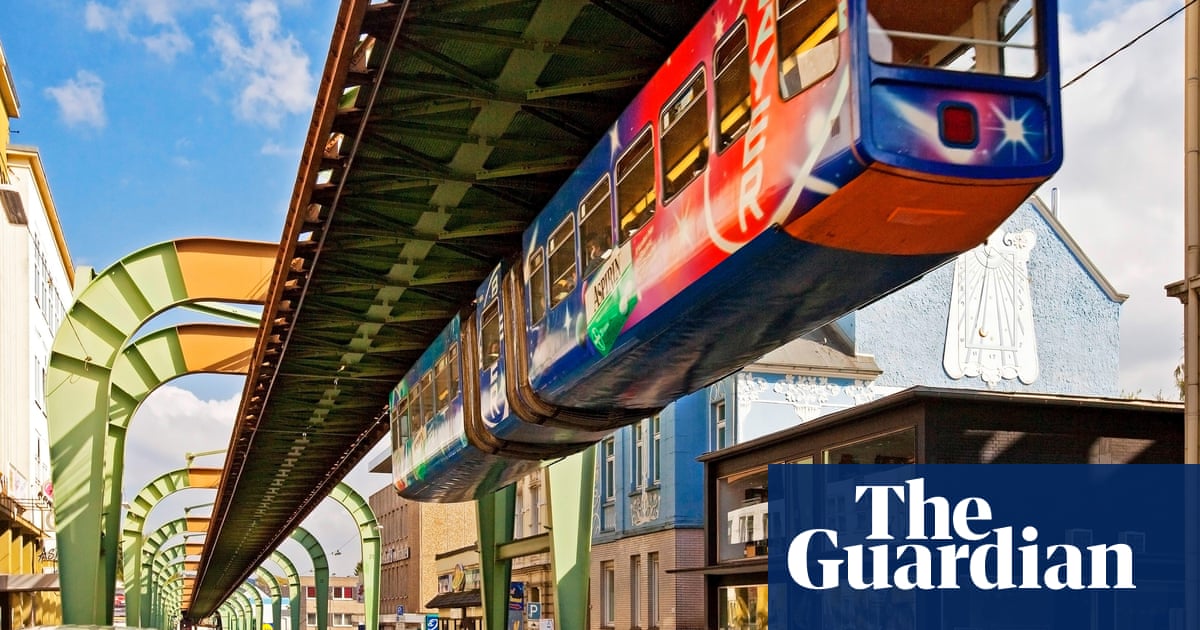Creaking, overcrowded, neglected, Germany’s railways, once a source of national pride, have taken a battering to their image in recent years. Amid wider concerns about the health of Europe’s stagnating largest economy, the state of its trains has become something of a metaphor for a more general sense of malaise.
On Sunday Germans will go to the polls in one of the most important elections in recent times, with an emboldened far right hoping to more than double its share of votes. In the run-up, the Guardian travelled more than 850 miles on trains across Germany to hear what its citizens have to say about the state of their nation.
In conversations with more than 50 people across five cities and over six days, we heard their hopes, fears and aspirations. Some spoke of increasing polarisation, of worries that a country that has spent decades undoing the evils of nazism could be heading back to the populist far right. Others complained about bureaucracy, energy costs – and, yes, about the trains.
These, from a journey that took in Berlin, Magdeburg, Bremerhaven, Gelsenkirchen and Dresden, are their voices.

Magdeburg: ‘It feels like we’ve lost our way’
In this city, south-west of Berlin, an erstwhile baroque jewel that was heavily bombed in the second world war, a cold winter mist hangs in the morning air and an accordion player in a trilby squeezes out the notes to the theme tune of the Godfather. Polish workers are up ladders in the city centre dismantling golden Christmas decorations.
An attack on the Christmas market here in December, in which a 50-year-old doctor from Saudi Arabia drove an SUV into crowds, killing six and injuring nearly 300, thrust Magdeburg into the political debate and prompted calls for tightened security, deportations and more border controls. It took place a month after the “traffic-light” Social Democrat (SPD)-led coalition that had ruled Germany since 2021 collapsed, precipitating Sunday’s snap vote.

In a campaign subsequently dominated by questions of migration and security, key issues for the far-right Alternative für Deutschland, the attack proved pivotal.
“When I was a child there were no safety worries when we went to the Christmas market,” says Bernd Katterfeld, 84, whom we meet close to the square where the attack took place. “For some years now it’s been secured by barriers and chains, but even that wasn’t enough to stop someone from carrying out a murderous attack.”
The attack, the retired steel engineer predicts, will boost the success of the far right “because the government is not undertaking enough measures to stop such incidents”. He does not understand why recent demonstrations had focused on “protesting against the right, rather than against those who carry out dreadful attacks on us”.
“It feels like we’ve lost our way,” he says. “I’ve always thought of Germany as a good and rich country, which had the important things in life under control.”
He brings the conversation to an abrupt end with a broad smile. His wife is waiting at home with a lunch of pork chops, broccoli and potato and he cannot be late.
At the nearby Johanniskirche, people have left their messages of condolence to the victims, in particular the youngest to be killed, nine-year-old André. “You live on in our hearts,” reads one. Another vows: “Justice will be sought in your name.”

Bremerhaven: ‘We need to protect our democracy’
On our way to the port city on a bustling regional commuter train we meet Faradis Youdi, an engineer from Kabul who went to Ukraine 33 years ago as a 12-year-old orphan, studied at Kharkiv University and fled three years ago to Germany, where he works as a cleaner.
“Life isn’t easy, but I do my best,” he tells us with a smile through a translator app, before alighting swiftly with a friendly wave.
In Bremerhaven, Diab Bransi, who came to Germany from Palestine in 1989, is waiting for notification on his application for citizenship.
An assistant at the Auswanderer Haus – a museum that tells the stories of the millions of people who left Europe from the port city between 1830 and 1974 – he cannot vote in Sunday’s election, but recognises that “much is at stake”.

“I hope that everyone comes to their senses. Europe needs Germany, but not a far-right Germany,” he says.
The two parties leading in the polls – the conservative Christian Democratic Union (CDU), led by Friedrich Merz, and the AfD, co-led by Alice Weidel – have proposed the imposition of drastic restrictions at Germany borders. If this were to happen, Bransi says, “we can close up Europe, forget free trade, the single currency”. Migrants, he adds, are “increasingly being viewed with suspicion”.
Across town, Buten un Binnen, a regional TV programme, is setting up a studio in a former cinema and candidates for the SPD, CDU, AfD, Greens and far-left Sahra Wagenknecht Alliance (BSW) gather for a live discussion on migration.
Renate Petersen, 66, an anaesthetic nurse who has recently retired after 47 years in the job, is in the audience. “I’m already decided I’ll vote for the SPD but I wanted to hear what the others had to say,” she says. “What’s most important for me is that we stop the slide towards the brown swamp of nazism. How can we be so dumb as to risk falling into that again? We need to protect our democracy.”

Petersen escaped communist East Germany in 1986, aged 27, where she had been spied on by colleagues and friends. “Not a day goes by when I don’t feel happy to be free,” she says. “It’s all the more reason I’m proud to live in a democracy where everyone can shape their own lives, where we can go anywhere we want, and live together in Europe. It’s time we started talking these things up.”
She does not trust Merz over his “collaboration” with the AfD – the conservative leader recently relied on far-right support to try to get his border tightening plan through parliament. “He’s a liar – he’ll continue to lie,” she says.
Germany risks becoming increasingly less attractive to migrants, she fears, “even though we desperately need them, due to our ageing population”. Around half her medical team were from abroad. “Without them our health system, and much else besides, would collapse.”

The AfD candidate in the debate, Arno Staschewski, strikes a different tone, telling the audience that if he were chancellor he would “close the borders and tell those who have no right to asylum to leave”.
A former Social Democrat and accountant, he describes himself as “from the mainstream of society”, adding: “We say things can’t continue as they are; they have to change.”

Many in Germany already have their eyes on 2029, when the next federal election is due to be held. Stefan Dettmann, 62, is unsure how he will vote, but says he would like Germany to be governed by a coalition between the AfD and the CDU.
“Which we could get if it weren’t for the Brandmauer”, the car mechanic says, referring to the consensus between parties that they will retain a “firewall” between them and the far-right: “I have little hope this will happen in the next four years but next time round I think they’ll have little choice as the pressure on them will only grow.”
Migration is far from the only thing on Bremerhaven’s collective mind. In the fisheries quarter, Felix Ahlers, the CEO of FRoSTA, a producer of preservative-free, frozen ready meals, is more concerned about Germany’s notorious red tape and says many of his biggest challenges stem from overregulation.

Keen to embrace renewables, Ahlers appointed a dedicated person to obtain permission to build a wind turbine with a view to the output covering 10% of the factory’s electricity needs “at our own expense and on the company’s own land”. But 18 months in, the project is far from complete.
“So many different authorities are involved. It’s complex and very slow,” he says. “If they think the turbine will cast a shadow, however briefly, on the eyes of the workforce, that is a reason to disallow it.
“So much is laborious, and very frustrating, particularly if you’re trying to do something innovative.”

Red tape, or, as Merz has termed it, the “bureaucracy monster”, has been a persistent theme in the election campaign, with the pro-business and small-government Free Democrats (FDP) proposing closing more than 100 government agencies to streamline the administration and save billions. Merz once famously argued a tax return should fit on to a beer coaster.
Their concerns have found a vocal mouthpiece in the US billionaire Elon Musk who, in an online chat with the AfD’s Alice Weidel, claimed that the approval documents for a Tesla plant near Berlin had stretched to a truckload of paper and that each page had had to be stamped by hand.
Ahlers says he had expected more from the Olaf Scholz’s government, and in particular from his coalition partners, the Greens. “They promised a lot but have not delivered. Their impact could have been much bigger. After all, when Germany makes the first step, as such a big power in Europe, others follow. If it doesn’t, nothing happens.”

Down the road at TTZ Bremerhaven, an independent research institute, the technical head, Markus von Bargen, 52, is also critical of Scholz’s coalition; its three years, he says, have been “catastrophic”. The forthcoming election does not fill him with optimism, either. He watched a debate between Scholz and his likely successor, Merz, which he found “quixotic – unworldly”: “Two men who don’t understand everyday life.”
Gelsenkirchen: ‘The AfD will deport people like me’
From Bremerhaven to Germany’s poorest city, with one of the country’s highest unemployment rates. Gelsenkirchen, once the most significant coal mining town in Europe, continues to search for a new economic and cultural identity. On the day of the Guardian’s visit, public transport workers are on strike.
On Bismarck Strasse, Jowan al-Sello, 19, who is studying for his Abitur in nearby Essen, says he has full confidence in Germany. “As Merkel said, ‘wir schaffen das’,” he says, repeating the former German chancellor’s oft-quoted mantra from the height of the refugee arrivals of 2015 (“we’ll manage”).

He arrived from Iraq as a four-year-old asylum seeker in 2010 and now has German citizenship; There is only one party he will consider voting for: the CDU.
“It’s thanks to the CDU under mama Merkel that many people in need were allowed to come to Germany,” he says, describing it as a “land of opportunity”, and talking of his dream to take up an apprenticeship with the BND, the foreign intelligence service.
But he does have concerns. He does not want the CDU to work with the AfD “because they are my arch enemy”. Having received a criminal conviction for what he says was a “prank that went wrong on a school trip” in 2020, “I fear if the AfD comes into power, they will, as they’ve pledged, deport people like me.”

En route to Dresden we meet Martin, a physics graduate, and Elmedin, an administrative studies scientist, old school friends from Gummersbach, 30 miles east of Cologne.
Martin is quietly fuming, having experienced four hours of delays on his journey from Aachen: “It is very frustrating, but train chaos has increasingly become the norm in recent years.”
It is 13 February, hours after an Afghan man steered a car into a trade union demonstration in Munich, killing two people, one a toddler, and injuring 39.
The 24-year-olds are shocked, but also anxious about the way such attacks have been used to negatively frame the migration debate. “Migration has been over-inflated to the detriment of lots of other topics, such as the environment, the parlous state of the railways, [lack of] digitalisation, education, economic stagnation and social justice,” Martin says.
Both are certain that Merz’s border tightening plan will backfire. “He is trying to cream off AfD voters and they’ll expect him to deliver the original version,” Martin says.
Both men are from migrant families – Elmedin’s parents fled Bosnia in the 90s, while Martin’s are ethnic Germans who came from the then Soviet Union at the invitation of the German state.
“Often there’s a lot of talk about immigrants, but little attempt to speak with them,” Elmedin says. “They’re all too quickly demonised. The obligation should not only be on the immigrants to integrate but also on the country that takes them in. Germany needs them, after all.”

Radebeul, Dresden: ‘We must do everything to prevent war’
In this quaint Dresden suburb, where the AfD came a strong second behind the CDU at the last communal election, locals meeting in a community cafe in a converted Jugendstil railway station talk about how to bring people together.
“We feel the need to look after everyone’s wellbeing,” says Steffi Klingner-Emmerich, 38. “I fear Germany is about to lurch to the right, especially on the back of what’s happened in America, in Hungary, Austria and Italy. It makes me scared and incredibly sad.”

Karin Hesper, 90, who moved to tranquil Radebeul from Düsseldorf two years ago, describes the cafe as her “lifeline”.
A Greens voter almost all her life, the retired museum administrator’s main concern is the war in Ukraine, which reminds her of her own experience of the second world war, which “took the life of my father, forced my mother to evacuate the family, and left Germany in ruins”.
She appreciates that the Greens have, despite their pacifist roots, stuck with their conviction to keep supporting Kyiv, but is disappointed “that younger Germans don’t want to hear why we must do everything to prevent war”.

Berlin: ‘People are scared … but they’re also wide awake’
The delayed train to Berlin is a Railjet from Graz, with a much welcome and well-stocked České Dráhy (Czech railways) restaurant car on board. “Plum crumble is finished,” says the waitress, but creamy mushroom, potato and dill soup is still available, as is a single portion of wild boar goulash with bacon dumplings and pickled vegetables.

The train pulls into Berlin’s main station 20 minutes late. And at Die Distel (The Thistle), a political cabaret theatre in the former communist east, the stage is set for an excoriating run-through of every topic currently moving the German voter of whatever persuasion.
In Jenseits von Germany (Out of Germany): A True Story, everything is pilloried, nothing is spared the scalpel – from the country’s trains to its fear of migrants and refugees, from its potholes to its growing inequality. Europe’s largest economy is parodied as the sinking ship, the “erstwhile invincible” Made in Germany.

It kicks off in an out of kilter fairytale world, in which Red Riding Hood moans to the wolf about the care worker shortfall, Snow White dare not enter the forest for fear of attack and Rapunzel can’t get a hairdresser’s appointment.

The audience, in what is virtually a full house, howls with laughter and sometimes squirms. “It’s close to the bone,” admits the scriptwriter and actor, Frank Voigtmann. “It’s like releasing a pressure valve. People are lacking orientation, and scared by the topsy-turvyness of the world, but they’re also wide awake.”

 3 months ago
50
3 months ago
50

